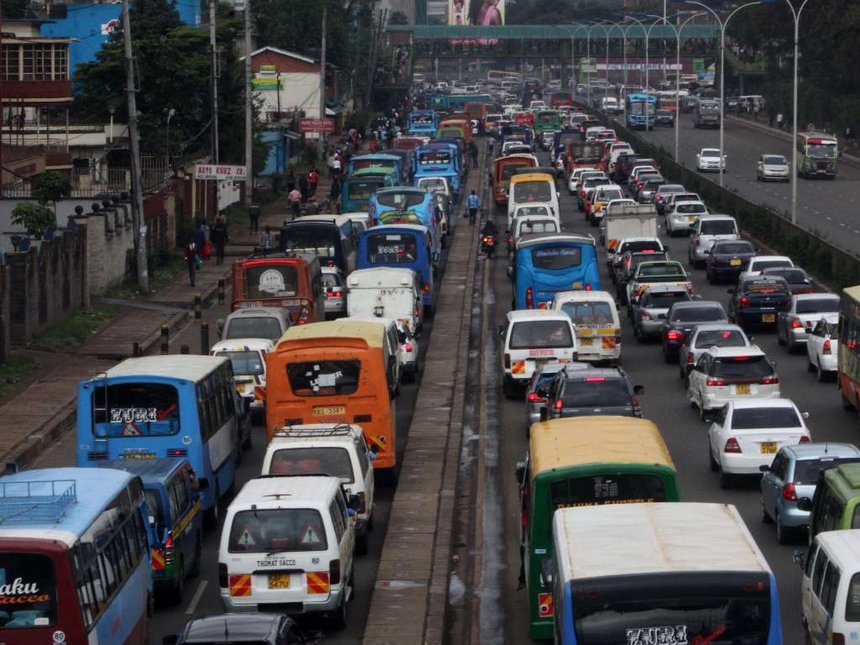Share this
The morning traffic jam along the Thika Super highway heading to Nairobi CBD on November 17,2016./ENOS TECHE
Nairobi is built for cars, says World Bank study
Nairobi is a city built for car owners who can reach 90 per cent of the workplaces within an hour on average, a new report by the World Bank Group suggests. This is unlike commuters using public service vehicles who spend the same time to access 20 per cent of the jobs.
However, only 13 per cent of trips to work in the Kenyan capital are by cars, according to the study. Privately owned matatus account for 28 per cent of the journeys, while 41 per cent of the residents walk to work.
The Africa’s Cities: Opening Doors report states Nairobi’s traffic congestion, which is caused by a deficient transportation infrastructure, is crippling the economy.
The capital, the study released on Thursday says, has one of the longest average journey-to-work time on the continent.
“Heavy congestion, high rates of walking, informal collective transportation, and the spatial distribution of jobs and residents lead to low employment accessibility in Nairobi and the misallocation of labour,” the study says.
According to data obtained in 2013, in UK’s capital, London, residents could reach 54 per cent of all jobs within 45 minutes compared to Nairobi’s 5.8 per cent.
In Uganda, residents can access an average of 19 per cent of jobs within an hour. About 70 per cent of trips to work in Uganda are made on foot, the Uganda Bureau of Statistics said in 2010.
“Economically, the ideal city can be viewed as an efficient labour market, matching employers and job seekers through connections,” the World Bank says. “With matching, cities benefit because by increasing the size of their labour force and its diversity, employers and job seekers are more likely to find an appropriate match that makes the best of workers’ skills and aspirations.”
On Thursday, President Uhuru Kenyatta created Nairobi Metropolitan Area Transport Authority through an executive order under the provisions of the State Corporations Act, State House spokesman Manoah Esipisu said in a statement.
The authority will oversee the implementation of an integrated public transport strategy comprised of the proposed Bus Rapid Transit system and Nairobi Commuter Rail system.
The report roots for early deployment of collective transportation systems (buses and trains on fixed routes) in African cities to create more jobs and reduce cost of living.
“Compact cities [associated with collective transportation] also mitigate the impacts of higher oil prices,” the study states.
Source: The Star



















